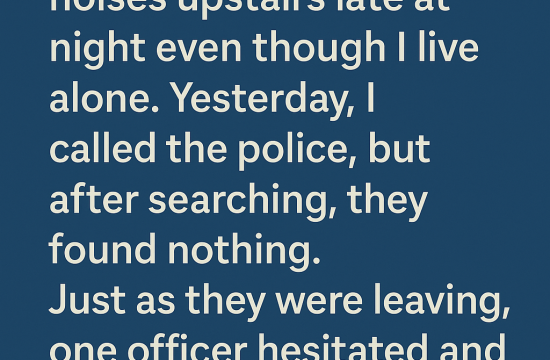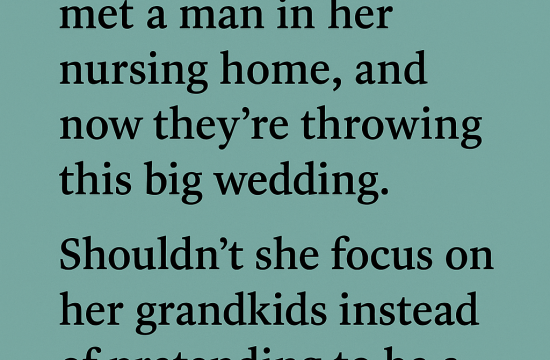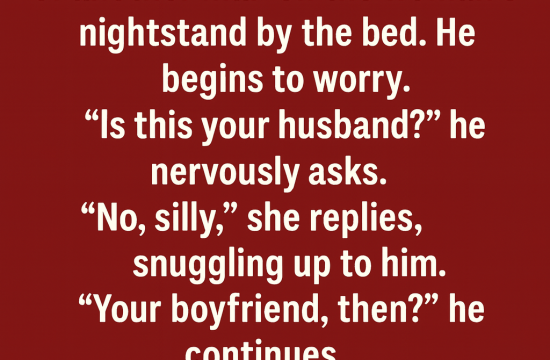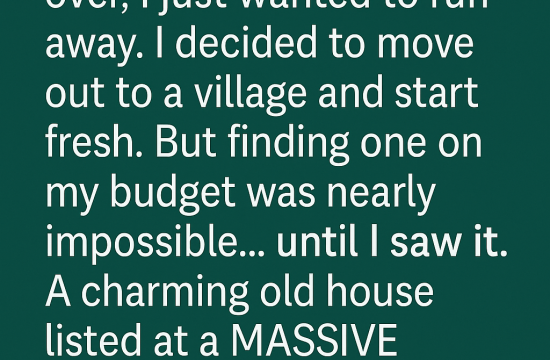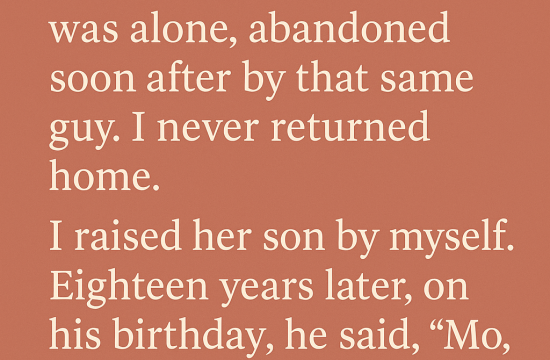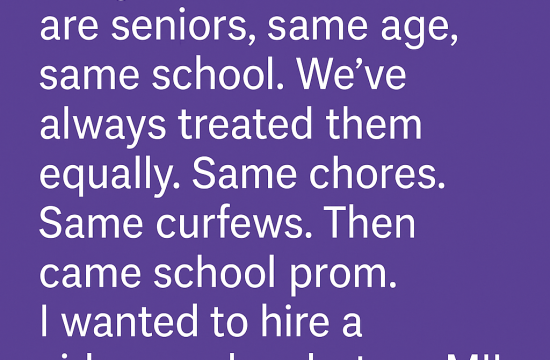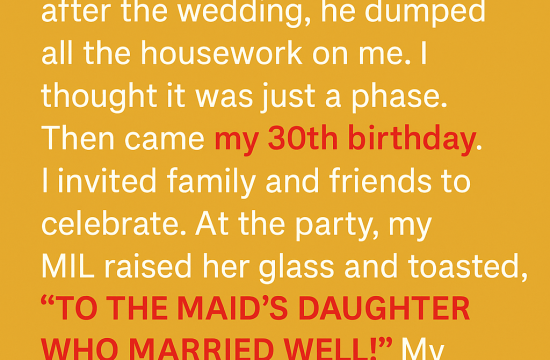My neighbors are incredibly jealous people. Once, a friend of mine left a brand-new car at my house, and they saw it. When they asked me whose car it was, I jokingly said it was mine. A week later, my friend drove it away, and the neighbors were shocked. It turned out they’d already been talking behind my back—saying I was showing off, bragging too much, and probably hiding something shady.
To be fair, I live in a small town. Everyone knows everyone, and gossip spreads faster than news. I never tried to impress anyone. I kept to myself, worked as a freelance designer from home, and paid my bills on time. But in a place like this, being quiet makes people more curious.
After the car incident, I figured it would blow over. People would realize it was a joke and move on. But I underestimated how deep envy could run. My neighbors, especially the couple across the street—Victor and Alina—started acting strangely. At first, it was just awkward smiles and tight nods. Then came the passive-aggressive comments.
“Still driving that invisible car, huh?” Victor would smirk.
“We thought you’d hit the lottery. Guess we were wrong!” Alina would chirp, laughing a little too loudly.
I didn’t owe them explanations, but you can only ignore so much. When they started warning others in the neighborhood not to “trust what they see,” I realized they weren’t going to let it go.
So I did something stupid.
One afternoon, while chatting with another neighbor, I casually mentioned I was thinking of buying property in the next town over. I don’t know why—maybe to take control of the narrative, maybe because I was tired of being the quiet one. But once the words left my mouth, they took on a life of their own.
By the next day, people were asking when I was moving. A few days later, someone congratulated me on “finally getting out.” I didn’t correct them. I smiled and nodded. And just like that, I was the talk of the block again.
This time, it wasn’t about a car. Now, people were speculating that I was secretly rich. That I had a booming online business, investments, maybe even crypto. And strangely, the same folks who used to side-eye me were now inviting me to dinner. Victor asked if I wanted to join poker night. Alina brought over cookies and called me “our future millionaire neighbor.”
It was bizarre. But I won’t lie—it felt good.
Then things took a turn.
Old classmates, a distant cousin, even my high school ex started reaching out. A local real estate agent, Dan, showed up, saying he had “exclusive listings” for me. Just to kill the rumors, I agreed to see one.
He drove me to a beautiful little cottage outside town—big yard, trees, a creek. I loved it instantly. The price was higher than I could afford but not impossible if I stretched. And instead of ending the lie, I deepened it—telling Dan I’d think about it, telling neighbors I was “in talks,” even implying I’d sell my house soon.
Pretending had consequences. Alina asked about renting my place for her niece. Victor said they could put down a deposit immediately. I stalled with excuses about “paperwork delays,” but I was running out of time.
Then Dan came back with news: someone else had made an offer on the cottage. He needed my answer by tomorrow. That night, I sat on my porch, staring at the street. I’d let a joke about a car turn into a story that was about to push me into buying a house I couldn’t afford—just to keep up the act.
The next morning, I called Dan. I told him I wasn’t buying. Then I did something even harder: I invited Victor and Alina over and told them the truth—about the car, the fake story, the house, all of it.
At first, they were stunned. Then confused. Then… they laughed.
“I knew something was off,” Victor said. “You didn’t have that smug rich-guy vibe.”
“You had us fooled,” Alina added. “Honestly, I respect the commitment.”
And then Victor said something that stuck with me: “I used to think you looked down on us. But now I see—you were probably just trying to fit in, same as the rest of us.”
He was right.
We talked for hours—about work, money struggles, life. It was the first real conversation we’d had. Over the next few weeks, word spread—not that I was rich, but that I’d told the truth. And oddly, people respected that even more.
The fake smiles stopped. Real conversations started. Victor and I grab coffee sometimes. Alina invited me to her book club. The neighborhood feels warmer now.
I learned something important:
People don’t admire perfection—they admire honesty. Vulnerability. The courage to say, “Yeah, I messed up. But here I am anyway.”
That’s the real wealth.




